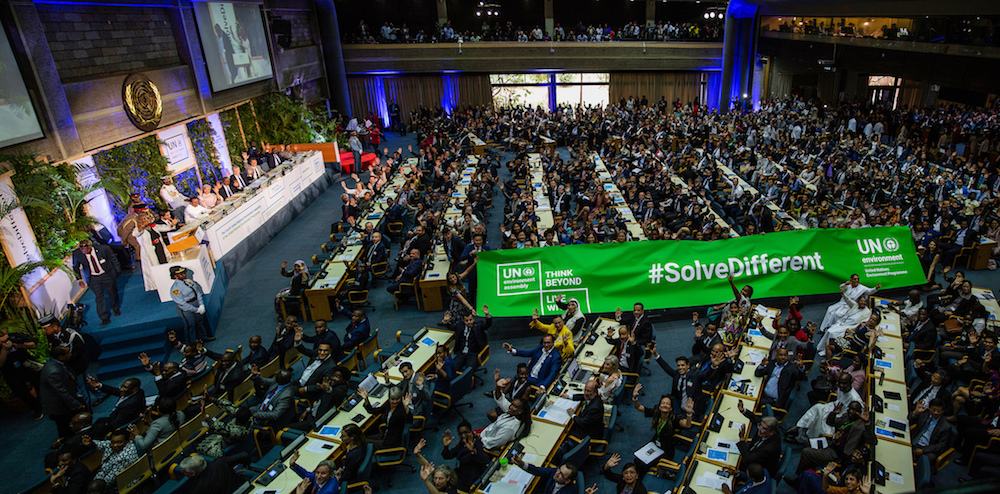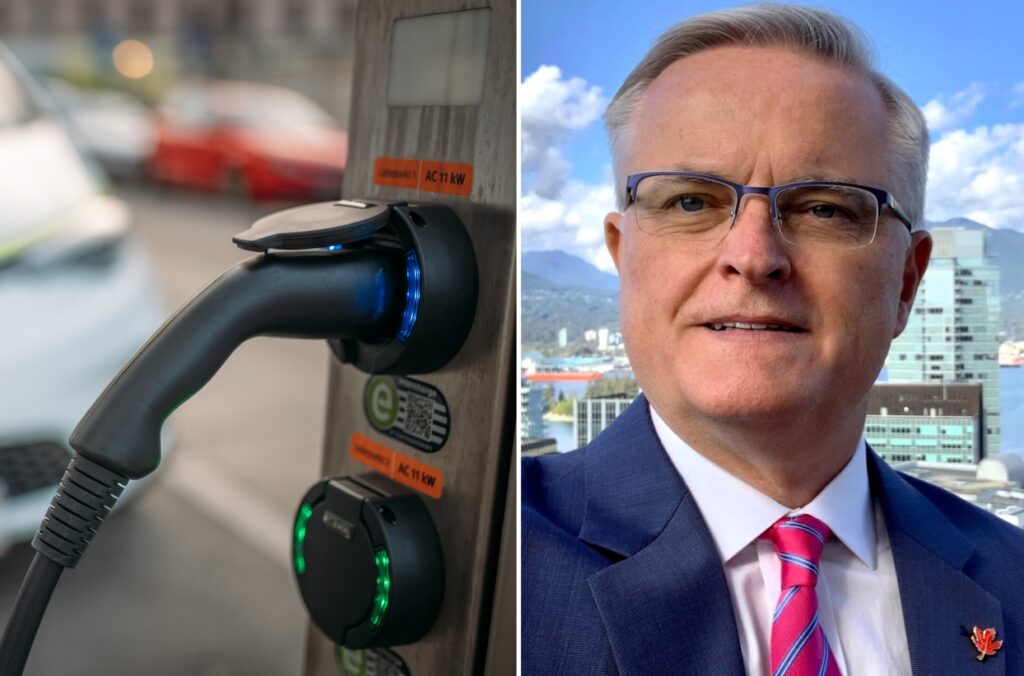This is a guest post by Linda Schneider of the Heinrich Böll Foundation.
At the United Nations Environment Assembly (UNEA) meeting in Nairobi, Kenya, this week, the U.S. and Saudi Arabia blocked a push to gather information on potentially regulating climate geoengineering technologies. Switzerland, along with 11 other countries, including Micronesia, Senegal, and New Zealand, had submitted a draft resolution mandating a report on the state of research, risks, and possible governance options related to geoengineering efforts.
After nearly two weeks of controversial negotiations, the Swiss government withdrew the resolution on the evening of March 13, as no ground for consensus could be reached, despite intense efforts. The Swiss resolution could have been the starting point for regulatory approaches under UNEA, the highest UN body on matters related to the environment.
The unfortunate outcome of the UNEA negotiations demonstrates just how much the governments pushing for both geoengineering research and projects in the interests of the fossil industry will balk at increased oversight and regulation. To be clear: The draft resolution envisaged only an assessment of geoengineering technologies, their risks, and potential governance options — legally binding agreements were a long way from being considered in this draft resolution.
“The active opposition to any form of geoengineering oversight from the United States and Saudi Arabia should be a wake-up call to those who assume big emitters and oil producers will readily embrace responsible governance of these technologies if it interferes with business as usual,” said Carroll Muffett, President of the Center for International Environmental Law (CIEL).
The urgent need for international oversight of these unproven and risky technologies remains. After all, research and development of geoengineering technologies to mitigate climate change is currently being driven forward through research programs, outdoor experimentation and pilot projects, public subsidies, and substantial investments from Silicon Valley, the fossil industry, and the mining industry. Geoengineering approaches range from injecting sunlight-blocking particles into the atmosphere (to cool the planet) to fertilizing the ocean with iron to boost populations of carbon-absorbing phytoplankton.
Hence, an international debate on how to effectively regulate these planetary-impacting technologies should start sooner rather than later, and not wait until the research on these various approaches is complete. The good news is that the moratorium on geoengineering adopted in the UN Convention on Biological Diversity in 2010 remains valid and in place, as does the regulatory approach to marine geoengineering in the London Protocol to the London Convention on the Prevention of Marine Pollution. The latter already prohibits ocean fertilization due to its negative impact on the marine environment and has established an assessment framework that opens the possibility for other marine geoengineering activities to be regulated in the future.
The new report from the UN Expert Group on Marine Environmental Protection, released just this week, provides a renewed assessment of marine geoengineering technologies, which could become the basis for further regulatory action.
In order to do justice to the profound, multi-dimensional risks associated with geoengineering, its governance requires meaningful cooperation and active involvement by all relevant UN institutions with their different expertise and mandates. The risks of geoengineering go far beyond climate change and its politics; it carries risks and large-scale adverse impacts for biodiversity, ecosystems, food security, human and land rights, and international security.
To justify blocking the recent resolution, the U.S. and Saudi Arabia argued that the UN’s Intergovernmental Panel on Climate Change (IPCC) in its upcoming 6th Assessment Report (AR6) would fully and comprehensively address all matters related to geoengineering. Given its mandate and expertise primarily on climate change issues, it is clear that the IPCC can’t and won’t cover all of the aspects of the risks associated with global geoengineering.
In addition, much of the literature that will feed into the IPCC‘s upcoming assessment comes from the so-called “Geoclique” — a fairly small group of researchers involved in researching geoengineering for years, in some cases holding patents on individual technologies and/or having other vested interests in the development of geoengineering technologies.
Finally, one of the two coordinating lead authors of the geoengineering chapter in the IPCC’s 6th Assessment Report is a representative of Saudi Aramco, the Saudi national oil company. This raises serious concerns about conflicts of interest and objectivity of the IPCC’s evaluation.
A comprehensive and balanced assessment must review the multiple risks geoengineering poses to the international community and global environment. The risks of geoengineering clearly go beyond the scope of climate science and policy. Thus, the IPCC and the United Nations Framework Convention on Climate Change are not the best suited for addressing geoengineering governance.
That debate requires the active participation and recognition of the positions of international civil society and, in particular, those who are potentially the most affected by the risks. Due to the known risks, 180 civil society organizations and popular movements have already called for an international ban on geoengineering, a call reiterated now.
Based on existing international environmental law and agreements — as well as the precautionary principle — those governments that pushed for greater geoengineering oversight should next be moving towards a UN-level ban.
Main image: March 14, 2019. Nairobi Kenya. The 4th United Nations Environment Assembly. Credit: © Natalia Mroz, UNEP, CC BY–NC–SA 2.0
Subscribe to our newsletter
Stay up to date with DeSmog news and alerts







